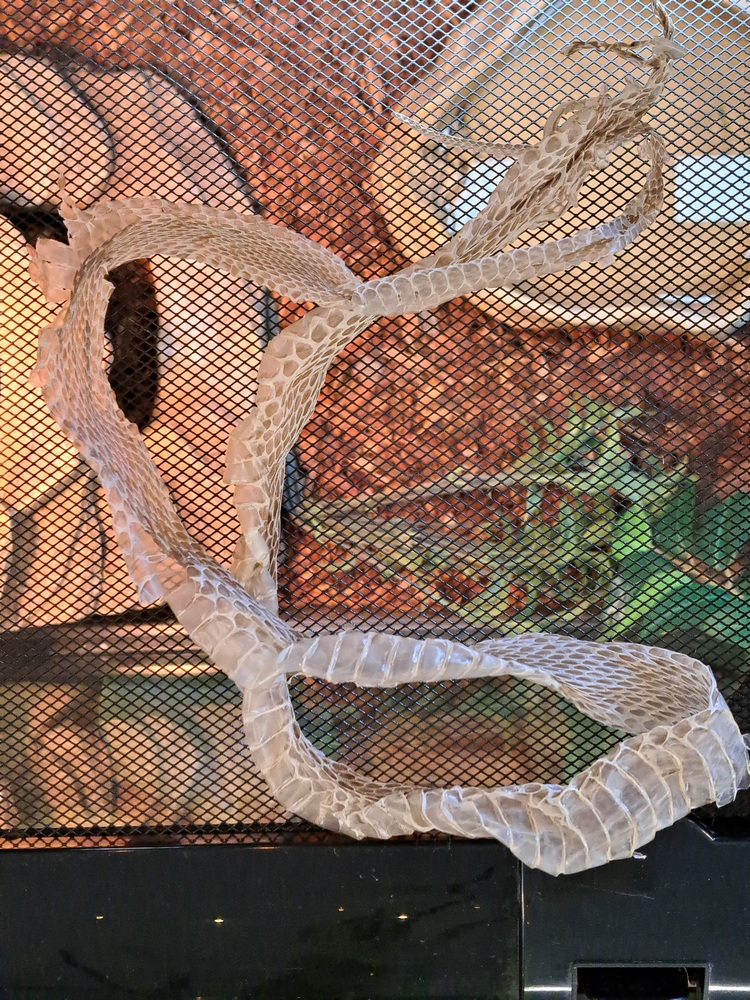RS29: Father of Lights and Mother of Breath – Again
A: I just love Biblical Archaeology Review. Yesterday I came home from work and checked out the latest newsletter they’d e-mailed. I get a newsletter from them every few days, and sometimes I don’t read them. But this one caught my eye, and I clicked on the link (http://www.biblicalarchaeology.org/daily/biblical-topics/bible-interpretation/misogyny-in-the-bible/). There I found a wonderful article by Biblical Studies professor April DeConick. The full article, called “Biblical Views: How the Mother God Got Spayed,” appears in the latest issue of Biblical Archaeology Review (Sept./Oct. 2012). I just love everything about this article. It’s so honest. She dares to ask if we’re “trying to apologize for the misogny in the Bible because of our religious belief in the sacred nature of the Bible.” Thank you for saying this out loud, Dr. DeConick!
I’d like to quote one paragraph from her article:
To begin with, humans — whether ancient or modern — think within gender categories. And whether we admit it or not, gender never has been neutral. Power is always involved. In the ancient world, the female body was believed to be subhuman, imperfect — a deficient body because it lacked the male genitalia. The male body was the perfect body. So the male body dominated the scene, including the Bible, Christian theology and Christian ecclesiology. In other words, the Bible came into being within a cultural matrix where the female body by definition was substandard and dehumanized. This dehumanization of the female body affected virtually every storyline of the Bible.
She then goes on to explain how this misogynist view of the female body affected the way ancient Jews and early Christians perceived God:
This misogynist view of the female body affected the way in which the ancient people created their theologies and engaged in worship. This is not to say that all ancient Jews and early Christians perceived God only as a male Father God. Indeed, worship of the Mother God in conjunction with the Father God can be demonstrated to have occurred within ancient Israel. Both the Bible and archaeology confirm this. So it isn’t that the Mother God was absent from their worship. Rather she was consciously eradicated from worship by the religious authorities.
Then DeConick dares to say that in early Christianity, “[w]e have records that demonstrate that the Holy Spirit was perceived by the first Christians to be not only female, but also Jesus’ Mother.”
Yup. I just love it when good scholarship backs up everything you’ve been telling me for the past few years.*
J: I worked very hard to distance my teachings from the religious orthodoxy of my day. As we’ve discussed many times, I didn’t view God as a male-only figure. I also didn’t view God as a “genderless divine essence,” as biblical scholar Ben Witherington so quaintly puts it (a thesis that’s challenged by Dr. DeConick in her article). For Paul, Spirit/God/Christ was a genderless divine essence — just as for Plato, God was a genderless divine essence. But this was never my teaching. So for those Christians who want to retreat into the cowardly territory of God as “cloud of knowing” or “ground of being” instead of God as two loving people, they need to be honest about their beliefs. They’re modern day Platonists, not followers of the teachings of Jesus.
A: The Gospel of Mark speaks so eloquently about your lack of misogyny. The stories about the hemorrhaging woman (Mark 5:25-34) and the daughter of Jairus (Mark 5:35-43) break my heart. The hemorrhaging woman seems to me like a symbol of the terrible abuse suffered by any woman whose symptoms make her “unclean” and “impure” according to religious law. Can you imagine being treated as a pariah for years and years simply because you’re a woman and you’re medically ill? How cruel is that.

“Now there was a woman who had been suffering from hemorrhages for twelve years. She had endured much under many physicians, and had spent all that she had; and she was no better, but rather grew worse. She had heard about Jesus, and came up behind him in the crowd and touched his cloak, for she said, ‘If I but touch his clothes, I will be made well.’ Immediately, her hemorrhage stopped; and she felt in her body that she was healed of her disease. Immediately aware that power had gone forth from him, Jesus turned about in the crowd and said, ‘Who touched my clothes?’ And his disciples said to him, ‘You see the crowd pressing in on you; how can you say, “Who touched me?”‘ He looked all around to see who had done it. But the woman, knowing what had happened to her, came in fear and trembling, fell down before him, and told him the whole truth. He said to her, ‘Daughter, your faith has made you well; go in peace, and be healed of your disease.'” (Mark 5:25-34). Handstitched “Grandmother’s Flower Garden” 7,000-piece quilt. Photo credit JAT 2018.
J: It seems hard to believe the Roman Catholic church and the strict Calvinist traditions can be so wilfully blind about my teachings on women. They can reinterpret the healing stories from the Gospel of Mark until they’re blue in the face, but they can’t erase the obvious truth that I believed women are equal to men in the eyes of God and are not unworthy or impure simply because they’re women.
A: I love the way DeConick picks up on Tertullian’s role in destroying the self-image of Christian women for centuries to come. Tertullian was a very nasty fellow — a status addict of the worst kind.
J: To despise a woman because she’s a woman is a clear indication of status addiction. To despise the idea of God as two people — God the Mother and God the Father — is another clear indication of status addiction.
A: How so?
J: Status addiction is a form of theft. It’s an intentional theft of someone else’s sense of worthiness and self esteem. In the Christ Zone model we’ve been looking at, there can be no true balance or wholeness or self-actualization unless all four major needs are met: physiological needs, safety needs, love & belonging needs, and self-esteem needs. So important are these four major needs to human health and happiness and peace that psychiatry should reformulate its DSM bible to show disorders of physiological needs, disorders of safety needs, disorders of love & belonging needs, and disorders of self-esteem needs, instead of its current categorization system.
A status addict is someone whose brain is not functioning in balanced, holistic ways. For various reasons a status addict can’t generate an inner sense of self. They can’t generate a portrait of themselves, if you will, a portrait of themselves as a child of God. Often this is due to damage in the parietal and parieto-temporal regions of the brain.
Because they can’t “see” themselves — because they can’t “plant” themselves in the firm ground of relationships and boundaries and heart-to-heart bridges among all life in Creation — they can’t rely on emotions such as trust and Divine Love and forgiveness to help them cope.
A: Why not? Why can’t they rely on trust and Divine Love and forgiveness?
J: Because these coping mechanisms are all founded in the core principle of relationship — relationship between two or more people. If you choose not to “do relationships” you also can’t “do love and trust.” Positive, mature relationships draw on all the same parts of the brain as love and trust do. They use the same neurotransmitters.
A: Such as oxytocin and vasopressin and prolactin levels in the bloodstream and brain. Also serotonin. To name a few.
J: Yes. ne of serotonin’s jobs is to act as a mediator between the Darwinian Circuitry of the brain and the Soul Circuitry of the brain. The role of serotonin in sustaining mood is beginning to be understood by medical science. But it’s not the only factor in mood disorders. A major complicating factor for many individuals — one that hasn’t been recognized by researchers — is status addiction. Status addiction drives a person at a physiological level to seek a brief glimpse of himself by stealing somebody’s self-image.
It goes like this:
The status addict sees a woman who has confidence, self respect, and dignity. It’s as if she’s painted a portrait of herself inside her heart and knows who she is. Also who she’s not. The status addict doesn’t know who he is and doesn’t know who he’s not. But he’s jealous. He’s jealous and angry at the woman who has something he does not. So he endeavours to take it. He endeavours to steal her portrait, or a piece of her portrait, and claim it for himself. He takes it any way he can — usually through threats and physical or emotional abuse. But the most vicious predator will try to rob the spiritual part of her self portrait, the part that tells her who she is in relationship with God. He’ll try to rip out her entire sense of worthiness and self-esteem as a child of God. Then he’ll take that piece of her portrait and pin it up on his own “inner wall.” He’ll look at it and gloat. He’ll enjoy her suffering. The stolen portrait becomes a hazy sort of mirror where he can finally see himself. And for a brief moment, he’ll see himself as someone powerful and clever and potent.
Sixty seconds later his brain will let go of the high. The image will vanish. The sense of inner emptiness will return. So he’ll have to go out and steal somebody else’s spiritual portrait. This is how he copes with his own inability to love and trust and be in relationship with anyone, including God.
A: Religious law as schadenfreude.
J: Yes. It’s a very poor substitute for reality, but many individuals rely on it.
To steal the reality of another person, to steal their wholeness, to try to steal their very existence, is a concentrated form of hatred. It’s not purity of thought or transcendence that drives a person to say there is no personhood in God. It’s not wisdom. It’s not faith. It’s just hatred. Plain old fashioned hatred. Hatred born of a status addict’s rage at the void he feels within himself.
To try to rip out God’s own self image, God’s own need for love & belonging, God’s own need for self-esteem (or, as we’ve called it here, God’s humbleness) is cruel and unconscionable. I mean, where do people think we get our needs in the first place? Do they think angels have a hard-wired need for love & belonging and self-esteem (humbleness) but God the Mother and God the Father don’t? Do they really think God the Mother and God the Father have no feelings?
Every child born on Planet Earth tells the truth about God and God’s angels again and again and again. Even the chromosomes of a child tell the truth.
God the Mother is real.
There’s no point fighting this truth any longer.
* Please see “Third Step: Invite Our Mother to the Table” and “Father of Lights, Mother of Breath






































